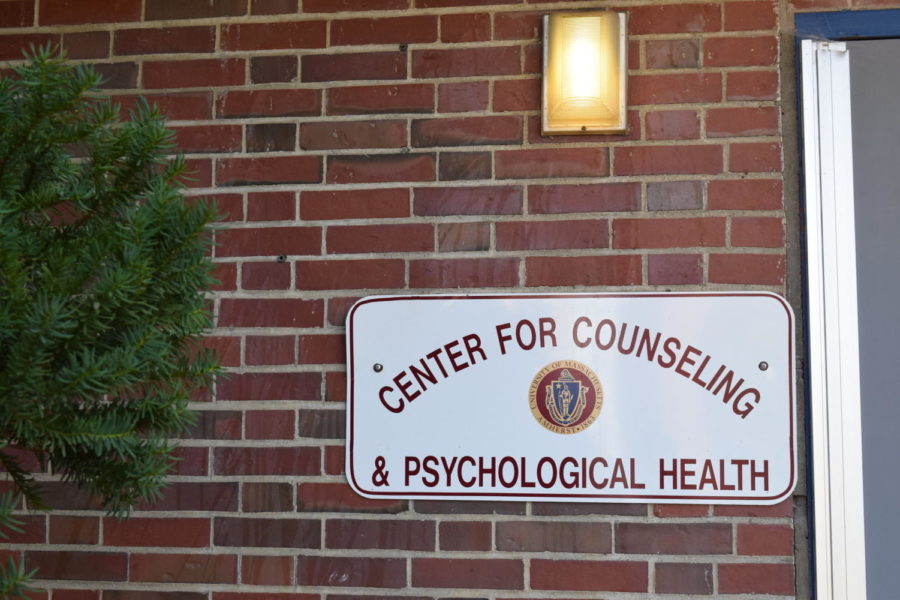Last month marked the one-year anniversary of the first significant effects of the COVID-19 pandemic on the United States. Over the past few months, mental health and wellbeing have gained greater prominence in the lives of many as people continue to manage social isolation and search for connection. Support groups, whether through casual conversations or clinically focused meetings, were uniquely situated to meet the moment.
At the University of Massachusetts, student groups such as Active Minds and the Center for Counseling and Psychological Health (CCPH) adapted to online platforms, hosting Zoom meetings and getting creative with social media platforms.
For CCPH, the pandemic “truly forced us to come into the twenty-first century, technologically speaking,” the center’s co-coordinator of group programming and a workshop facilitator Jennifer Cannella said.
Amanda McEnery, a CCPH staff psychologist and group facilitator, said that in to meet the urgency of the pandemic, the center was left with no option but to resolve technical barriers and find creative solutions. They shifted registration to the patient portal and started sharing resources online.
Participation has increased across the board in the various support groups, community conversations and workshops offered by CCPH. Cannella attributes this to increased accessibility and marketing, as well as a general desire to make connections during this time of seclusion.
Within the groups themselves, the nature of participation has shifted.
“It expanded on both ends. Some people have been able to access the space and be more vulnerable,” Cannella said. “I also think — and this isn’t necessarily a bad thing — that we are getting some people that like to keep their camera off and like to stay quiet.”
Those students may have simply not registered in the past, Cannella added. “We’d rather have them come and be exposed to the material in whatever way they are able to engage with it.”
The UMass chapter of Active Minds, a national organization, has also seen an increase in participants attending meetings that cover topics such as finding the right therapist. Christine MacCune, vice president of the group, said that some students come excited to share while others choose to leave their cameras off and listen.
“We believe that no matter if you are participating or standing on the side, you are a valuable member,” MacCune said. “You can be behind your camera and it’s more of a safe space.”
While people from all classes attend the Zoom meetings, MacCune has noticed an increase in upperclassmen. Many attendees, she said, are wondering if they really made meaningful connections in college.
“There are a lot of upperclassmen who are coming who are like, ‘Wow, I didn’t, I missed out on this opportunity.’ Zoom [is] a great way to do it. It’s not a big commitment,” MacCune said.
While there are specific qualities of in-person connection that the digital sphere cannot replicate, support groups have been able to find silver linings in remote interaction. The unique accessibility that Zoom and other platforms are able to offer has transformed the dynamics and participation of many groups.
CCPH staff can only work in a clinical capacity within the states they have licenses in. But during the pandemic, they were driven to reinvent their programs to expand accessibility for international students and others participating in remote learning.
Therapy groups are closed, clinically focused groups that require the facilitator to work within their license. But CCPH has also expanded on their community conversations, such as “Connections During Quarantine,” as well as skill-building workshops, which are open to all UMass students.
Active Minds has also increased their social media presence, sharing resources and information for students who may not be able to attend meetings.
Factors such as transportation and timing that previously hindered student’s ability to attend group gatherings have lessened with online meetings.
“Being online makes it a lot easier for people to jump from one meeting to the next, to eat dinner or snack while you are also in the meeting, and also makes it less awkward to leave or come at different times,” MacCune said.
McEnery echoed this sentiment. “I think people are able to show up to groups and workshops in ways that they wouldn’t be able to do in person, just due to logistics,” she said.
The privacy that Zoom and online resources can offer has also been a boon for some participants. Cannella noted that through online formats some students, who may not have been willing to go to the CCPH building or were concerned about stigma, were able to get the level of confidentiality and security they needed.
For all the benefits that an online format can offer, obstacles naturally occur. Remote work and school have not been without challenges and hosting a support or student group entirely through a pixelated screen is no different.
McEnery said that there is remarkable value to hosting support groups in-person, simply because of the intangible element of being in tune with those you are talking to.
“I think groups and workshops [are able to] figure it out, but two people will talk at the same time,” McEnery said, which “makes it harder to have a smooth conversation.”
MacCune reflected on a similar dynamic. “[Knowing] who is going to talk next, that is really hard,” she said.
MacCune says while not everyone who attends Active Minds has mental illness or is shy, “it is more awkward than normal to navigate that, and [be able to understand] those feelings and vibes from other people. It’s one thing to know when to leave that silence and room for people to have space but it’s hard to navigate that online. I’m like, is it too long of a silent pause, is it not enough?”
For all the increased interest in attending support groups, stigma remains pervasive around mental health topics. In the context of a support group, which is centered on vulnerability, this can become magnified.
“Some students feel a little bit of hesitation to try to be vulnerable in front of other students,” Cannella said. “I sort of try to frame it as you get to choose how much you engage. There really is a lot of acceptance in coming in whatever form you are and engaging in whatever way you feel comfortable.”
McEnery said that while there are so many preconceived notions of what group therapy is, the reality is varied and based on the individual participating.
“There can be a misconception that you have to have a mental illness to be a part of Active Minds. But you don’t have to, you just have to be interested in having the conversation or just listening about it,” MacCune said.
She acknowledged that it can be intimidating to join any group but emphasized that Active Minds is a group that is open, flexible and understands that people should come when they are interested in the meeting topics.
Looking towards the future, CCPH is committed to continuing to expand accessibility and online resources and make its programs relevant to the students who utilize them. MacCune similarly wants to continue to adapt and grow the sense of community that Active Minds fosters.
For all the technical innovations support groups have adapted throughout the pandemic, the changes have also shifted conversations around mental health. That opportunity may be the most profound development of all.
“Frankly, I think the pandemic has kind of normalized that like, you’re feeling lonely, yeah, a lot of students are feeling socially isolated,” Cannella said. “It’s a very real consequence of what is going on. And not only are you not alone but reaching out for help is a wonderful thing to do.”
Grace Fiori can be reached at [email protected].




















